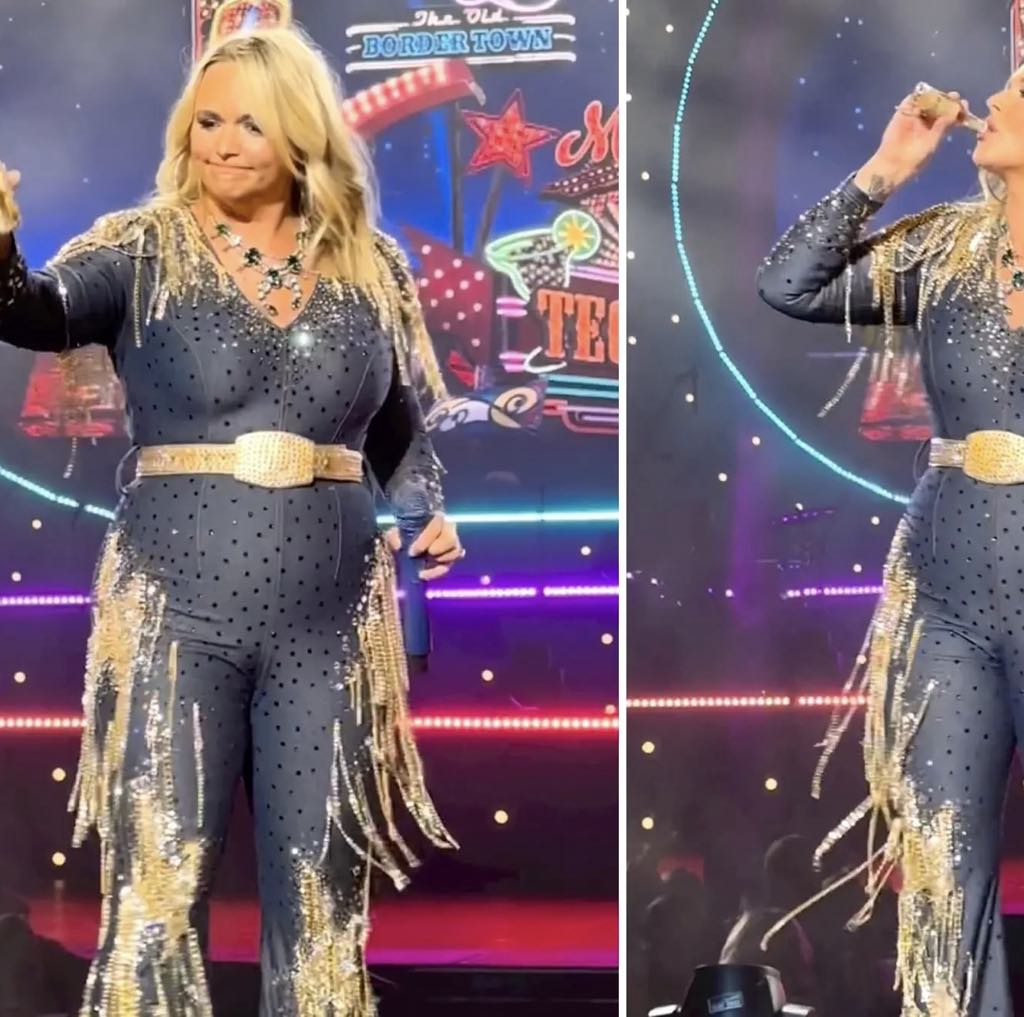Miranda Lambert, the celebrated country music star, is no stranger to captivating audiences with her performances. However, her recent Vegas residency has gained attention for more than just her soulful renditions and electrifying stage presence. Lambert sparked a heated debate when she interrupted a live performance to reprimand fans for taking selfies during her song, “Tin Man.” While some applauded her stance on living in the moment, others criticized her for publicly shaming her paying audience. Let’s dive into this controversial moment and the ripple effects it’s created.

The Incident: Selfies That Sparked a Storm
During one of her Vegas residency performances, Lambert noticed a group of women snapping selfies while she was performing her emotional ballad, Tin Man. The singer abruptly stopped mid-song, addressing the crowd to call out the selfie-takers. “I’m a little annoyed that these females are preoccupied with their selfie and aren’t listening to the song,” Lambert said. “Tonight, we’re here to listen to some country music. I’m performing some damn country music.”
The fans in question quickly put their phones away, but the moment had already taken a life of its own. Lambert resumed the performance, but not before making her disapproval crystal clear. The crowd responded with mixed reactions—some cheered her stance, while others were left stunned by the public reprimand.
Adding Insult to Injury? Lambert’s Follow-Up Remark
The controversy didn’t end there. At a subsequent performance, Lambert took a playful jab at the incident by acknowledging a fan wearing a shirt that read, “Shoot tequila, not selfies.” Lambert pointed it out to the crowd, saying, “I didn’t do it; she did!” While some saw the comment as lighthearted humor, others viewed it as pouring salt on the wound, further alienating fans who felt shamed by the earlier incident.

Fan Reactions: Divided Opinions on Lambert’s Actions
The reactions to Lambert’s behavior have been polarizing, both in person and online. Many fans in the audience applauded her for encouraging people to stay present and appreciate the live music experience. For them, Lambert’s comments resonated as a reminder to disconnect from screens and truly immerse themselves in the moment.
However, others were far less supportive, especially on social media. One Twitter user wrote, “How to humiliate and shame your devoted fans who love you. She could have made fun of them, posed for the selfie, and then urged them to live in the present. Not cool.” Another echoed similar sentiments, stating, “The goal of attending a concert is to make memories and have an experience. Anyone should be able to take a picture to record that memory.”
The incident has left many wondering if Lambert crossed the line by publicly reprimanding her fans. Some argue that while her message about being present is valid, the delivery—singling out paying audience members in front of thousands—may not have been the best approach.

The “Self-Taker” Speaks Out
Adela Calin, one of the fans involved in the selfie incident, later spoke out about her experience. Calin shared the photo they had taken and explained that the entire process took no more than 30 seconds. She clarified that the group was planning to sit back down and enjoy the show but was interrupted by Lambert’s callout before they could do so.
“It felt like I was back at school, with the teacher telling me to sit down again in my place and reprimanding me for doing something wrong,” Calin said in a statement. “She seemed intent on making us appear youthful, conceited, and immature. However, we were merely mature women in our 30s to 60s attempting to capture a photo.”
For Calin and her friends, the moment was more than just embarrassing—it felt like an unwarranted attack on their intentions. They were simply trying to capture a memory of a special night, not disrupt the performance or disrespect the artist.

The Bigger Picture: A Debate on Concert Etiquette
Lambert’s actions have reignited a larger conversation about concert etiquette and the role of technology in live events. On one hand, many artists and fans agree that constant phone use can detract from the shared experience of a live performance. It’s not uncommon for artists to request that audiences refrain from recording or taking photos to foster a more intimate and engaged atmosphere.
On the other hand, fans argue that taking photos or videos is part of how they document and cherish memorable experiences. For many, snapping a quick picture or video doesn’t mean they’re any less engaged with the performance. Instead, it’s a way to take a piece of the moment home with them.
Lambert’s Controversy in Context: A Trend Among Artists
Miranda Lambert is far from the first artist to voice frustration over phone use during concerts. Musicians like Adele, Jack White, and Bruno Mars have made headlines for urging fans to put down their phones and enjoy the moment. Some artists have even partnered with companies like Yondr to lock away phones during performances, ensuring an unplugged experience for all attendees.
However, the debate often hinges on how artists communicate their preferences. While some gently remind fans to be present, others, like Lambert, have taken a more confrontational approach, which can lead to backlash.

The Balancing Act: Fans vs. Artists’ Expectations
At the heart of this controversy is a clash between fan expectations and artist intentions. Fans spend significant money and time attending concerts, and for many, documenting the experience is part of the enjoyment. On the other hand, artists like Lambert want their music to be the focus, not the distractions of phone screens and selfies.
The key to resolving this divide lies in mutual understanding. Artists can set clear expectations before the show, whether through announcements or signage, while fans can strive to strike a balance between capturing memories and staying present.
Lessons Learned: How to Navigate Future Concert Experiences
For fans attending concerts, Lambert’s incident serves as a reminder to be mindful of when and how they use their phones. Quick photos during breaks or transitions may be a better choice than snapping selfies during intimate moments in a performance. For artists, it’s an opportunity to rethink how they communicate their desires for a more connected audience experience.
Conclusion
Miranda Lambert’s decision to call out selfie-taking fans has sparked an important conversation about the evolving norms of concert etiquette. While her message about living in the moment resonated with some, her delivery left others feeling embarrassed and alienated. This incident highlights the delicate balance between respecting an artist’s vision and allowing fans to celebrate moments in their own way.
Ultimately, concerts are about connection—between artists and their audiences, between music and memory. Whether through putting phones down or capturing a special photo, both sides can find a way to make live performances unforgettable for all the right reasons.


